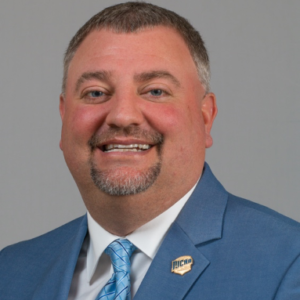JUCO: A Vital Lifeline For Student Athletes
Following our recent review of Last Chance U: Season Five, we wanted to delve a little deeper into collegiate sport, specifically Junior College (JUCO), like those featured on the show.
JUCO is a vital lifeline for young athletes who may not have the academic skills to get top scholarships. National Junior College Athletic Association (NJCAA) CEO & President, Dr Christopher Parker, is focused on doing all he can to keep that lifeline available.

Hoping for normality
Except for cross-country and the half-marathon, all national championship sporting events are being moved to the spring, which is a huge undertaking logistically for the NJCAA. Student athletes and NJCAA officials are looking forward to a sense of ‘normality’ in the future.
In July, the NJCAA voted to move its football season back to the spring. Practices will begin on March 1, 2021, with games beginning on March 25. Teams will play a shortened season between six and eight games, with play wrapping up by May 15. Championship and bowl games will begin on June 3.
“We saw schools already starting to cancel fall sports and rather than having all these schools cancelling we decided to postpone to the spring, so those student athletes still had a chance to participate,” Dr Parker said.
In late October, a blanket waiver was introduced ensuring athletes would not lose a year of eligibility, regardless of sport participation this season. This left some parents and students unsure of the effect it would have on them and their future life plans.
Dr Parker explains: “[The main misunderstanding was] how does it affect the student athletes when they move on. The understanding that saving a year of eligibility is not for the students to return to a 2-year college, but they can carry it forward with them when they go.
“They can carry that eligibility with them when they finish a four-year degree and maybe they can enrol in a master’s program or something else and they still have eligibility and are gaining some kind of tangible benefit in an educational way.”
Uncertain territory
Students’ academics are essential for Junior College, as top universities will look for quality in potential student athlete scholarships. With the COVID pandemic cases and deaths reaching peak numbers in the US, the NJCAA understands the hardship for current JUCO students.
“Last spring, we saw a very significant number of positive outcomes in terms of the grades, you know with everyone’s flexibility. This fall we have heard a mixed bag of results since starting face to face and having to transition to virtual teaching the whole semester and having to try and learn that way.”
It will be interesting how the grades and academic outcomes shape up at the end of this semester, but for the majority our fingers are crossed that people are adapting and learning. But we know it’s difficult to learn that way, so we understand all the dynamics that we are facing.”
The NJCAA have special initiatives set up to help JUCO students struggling due to COVID, as Dr Parker explains: “As an organisation, we have to be careful with their ability to maintain their eligibility academically.
“We have a special committee with our board that will review and vet [personal] situations. You can appeal those to try and maintain your eligibility for the spring.”
The massive growth of eSports
As well as presiding over JUCO, Dr Parker is also the eSports Chairman of the NJCAAE program, built to promote esports and is the only national association exclusively for two-year colleges.
He believes that now is the perfect time to promote esports to young students: “I think the future is here now. COVID-19, quarantine, 2020… you name it, now is the time to figure out how to put that video game ability to good use.
“We have seen a lot of academic programs stem from this [eSports], from video game design to logistics and some of the other IT driven courses, so we see that at the community college level pretty readily now.”
The esports industry is growing massively with 245 million casual viewers and 198 million enthusiasts, making the total audience 443 million in 2019, a 12% increase compared to 2018.
Dr Parker sees big potential in this industry for new student athletes: “It’s moved into high schools, colleges and now you have all these professional ranks and it’s just unbelievable. My job is to make sure that the structure and organisation is there to let the people who are good enough, put it all into play and use their abilities in a positive manner.
“Overall, what we are seeing in our organisation is a growing number of teams, pretty significantly from year 1 to year 2. If school A had a roster size of 10 last year, they’ve gone up to 20-25 this year, that growth is unbelievable. Can you cap the roster? Of course, but why would you do that, because then you aren’t creating more opportunities.”
Dr Parker is optimistic for the future and welcomes the increased growth of NJCAA student athletes, even across the Atlantic: “For all the potential student athletes out there in the UK, the NJCAA is a great opportunity to make your way over to the States.”